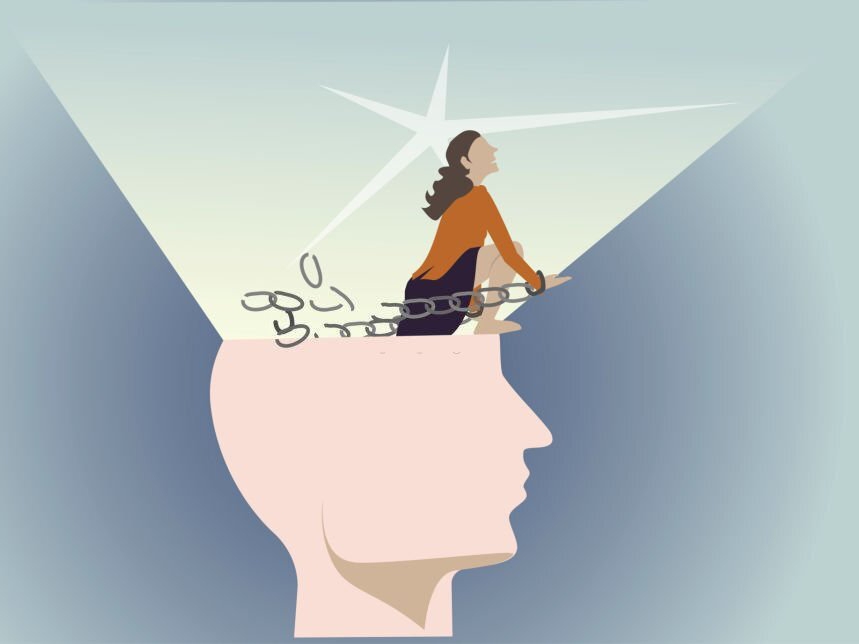If you want to become full, let yourself be empty. If you want to be reborn, let yourself die. If you want to be given everything, give everything up. I count him braver who overcomes his desires than him who conquers his enemies; for the hardest victory is over self. Mastering others is strength; mastering yourself is true power. He who conquers others is strong; he who conquers himself is mighty.
Mastering yourself is the journey of a lifetime, involving exploration, self-discipline, and a deep commitment to personal growth. Self-mastery is about understanding who you are, setting a clear direction, and cultivating the power to navigate through life’s complexities with confidence, resilience, and authenticity. While it sounds like a huge task, the journey toward self-mastery is a series of small, intentional steps that anyone can take, building skills and insights along the way.
Let us explore ten (10) key principles and actionable steps to help you master yourself;
1. Understand Your True Self
Self-mastery begins with self-awareness. This means taking a hard look at who you are beyond the labels, roles, or titles others assign to you. Many people spend their lives caught up in what they “should” be, instead of who they truly are. Understanding yourself requires stepping back from these expectations to gain insight into your core values, strengths, weaknesses, motivations, and desires.
- Practice Self-Reflection: Set aside time each day to reflect. Journaling can be a powerful tool for identifying patterns, uncovering feelings, and developing a deeper sense of self.
- Observe Your Reactions: Notice how you respond to stress, conflict, and challenges. Do you get angry or defensive, or do you react calmly and thoughtfully? This can reveal emotional triggers and areas where you may need to work on emotional control.
2. Embrace Self-Discipline
Discipline is the backbone of self-mastery. Without it, intentions remain just that — intentions. Self-discipline helps bridge the gap between where you are and where you want to be. It’s about training yourself to do what is necessary even when it’s uncomfortable, inconvenient, or difficult.
- Set Clear, Achievable Goals: Goal-setting gives your discipline a direction. Choose one goal at a time to focus on, and break it down into manageable steps. Ensure that each step is measurable and within a specific timeframe to prevent you from burning out.
- Develop a Routine: Having a daily routine provides structure, reduces procrastination, and builds habits that support your goals. Consistent routines can build mental resilience and make self-discipline a regular part of your life.
3. Master Your Emotions
Learning to control and understand your emotions is crucial to self-mastery. Emotions can be powerful allies when understood or destructive forces when ignored or suppressed. Emotional intelligence is the ability to recognize, understand, and manage your own emotions, as well as recognize and influence the emotions of others.
- Practice Emotional Awareness: Become conscious of your emotional responses, especially in challenging situations. Instead of reacting immediately, try pausing, identifying the feeling, and reflecting on its source. This allows you to respond thoughtfully rather than react impulsively.
- Develop Coping Strategies: When faced with overwhelming emotions like anger or anxiety, having healthy coping mechanisms can prevent impulsive decisions. Breathing exercises, meditation, or even going for a walk can be effective ways to manage stress.
4. Build Mental Resilience
Resilience is the ability to bounce back from adversity. When you build resilience, you’re cultivating the strength to deal with setbacks, failures, and obstacles without losing your motivation or focus.
- Challenge Negative Thoughts: Pay attention to negative self-talk and replace it with constructive, positive affirmations. This shift in mindset can significantly boost your resilience over time.
- Embrace Failure as a Learning Opportunity: Rather than seeing failure as a setback, view it as an essential part of growth. By analyzing what went wrong, learning from it, and making the necessary adjustments is how to overcome failure. Resilience builds each time you choose to rise after a fall.
5. Cultivate a Growth Mindset

A growth mindset is the belief that your abilities can be developed through dedication and hard work. This outlook creates a love for learning and a resilience that is essential for great accomplishments.
- Welcome Challenges: People with a growth mindset see challenges as opportunities to grow, not as obstacles. Whether it’s learning a new skill, taking on a difficult task, or stepping outside your comfort zone, see every challenge as a path to self-improvement.
- Learn from Criticism: Constructive criticism can be a valuable tool for self-improvement. Instead of taking it personally, use feedback as a means to refine your approach and enhance your skills.
6. Take Responsibility for Your Actions
Self-mastery requires accountability. Taking responsibility for your actions, choices, and their consequences is essential for building a sense of control and ownership over your life.
- Own Your Mistakes: When you make a mistake, acknowledge it without excuses. Taking responsibility doesn’t mean blaming yourself but rather understanding where things went wrong and actively seeking ways to improve.
- Be Honest with Yourself: Accountability also means confronting uncomfortable truths about your behaviors and patterns. Self-honesty is challenging but necessary for meaningful growth and self-mastery.
7. Practice Mindfulness and Presence
Mindfulness — the practice of being fully present in the moment — is a key factor of self-mastery. It involves being conscious of your thoughts, feelings, and actions in real-time, which helps prevent mindless reactions and encourages thoughtful responses.
- Meditate Daily: Meditation is one of the best tools for cultivating mindfulness. Even a few minutes a day can sharpen your focus, reduce stress, and enhance self-awareness.
- Engage in Mindful Activities: Whether it’s walking, eating, or simply breathing, practicing mindfulness during these activities can help you build a habit of being present.
8. Develop Healthy Habits
Habits are the building blocks of mastery. To become your best self, focus on building habits that support your goals and values. When practiced consistently, healthy habits become automatic, freeing up mental energy and reinforcing positive patterns in your life.
- Start Small: Begin with one new habit, like drinking more water or setting aside time for self-care. Gradually add new habits as each one becomes second nature.
- Use Triggers: Create a sequence of activities where one habit naturally leads to the next. For example, a morning ritual of drinking water, stretching, and writing down your intentions can set a positive tone for the day.
See: Toxic Habits That Destroy Success and How to Overcome Them
9. Surround Yourself with Supportive People
You are just as strong as the people you surround yourself with. The people you surround yourself with have a significant impact on your mindset and behaviors. Seek out individuals who inspire, challenge, and support you in your journey of self-mastery.
- Seek Mentorship: Finding a mentor can provide valuable guidance and support as you navigate your path to self-mastery. A mentor can help you see your blind spots, provide constructive feedback, and offer encouragement when you face challenges.
- Engage in Growth-Oriented Communities: Whether through support groups, online forums, or classes, connecting with like-minded individuals can keep you motivated and accountable.
10. Commit to Lifelong Learning
Self-mastery is a continuous process, not a destination. It requires a commitment to lifelong learning, curiosity, and adaptability.
- Read Regularly: Books on self-development, psychology, or philosophy can offer insights that deepen your understanding of yourself and the world.
- Experiment with New Experiences: Trying new activities or exploring new perspectives broadens your horizon, challenges your comfort zone, and cultivates adaptability.
Embrace the Journey
Self-mastery is not about achieving perfection but rather about embracing the journey of becoming a better version of yourself each day. There will be moments of self-doubt, setbacks, and phases, but each step forward, no matter how small, is progress.
By understanding yourself, practicing discipline, mastering your emotions, and continually learning, you will move closer to a life of purpose, strength, and inner peace. It’s a journey that can empower you to lead not only yourself but also inspire and uplift those around you. Start today, and take that first step toward becoming the master of your own life.





